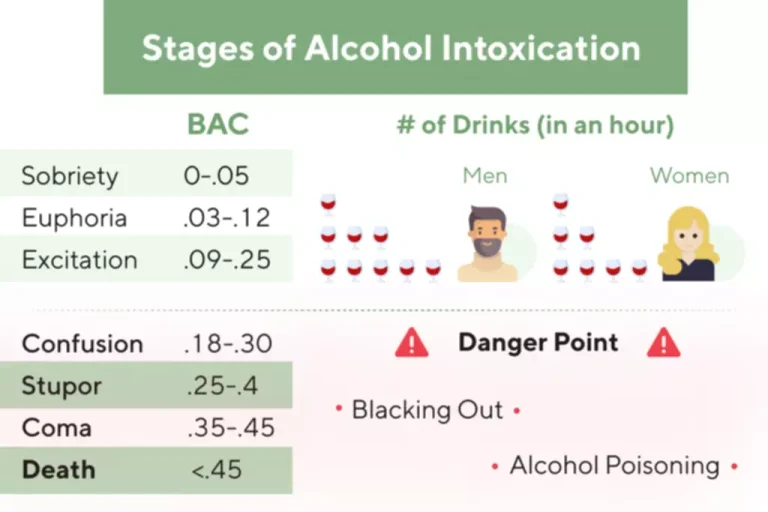
Newborns whose mothers are intoxicated prior to or during delivery can experience withdrawal symptoms, such as tremors and even seizures. Thus, repeated withdrawals during pregnancy may pose an additional risk to the fetus from that of alcohol exposure in itself. • Benzodiazepines are safe and effective in alleviating both seizures and general withdrawal symptoms as well as preventing further seizures. High initial doses may be necessary, but treatment should be discontinued within a week. Barbiturates have been shown to be effective in acute severe withdrawal syndrome. Withdrawal occurs when a person drinks large quantities of alcohol for a period of time and then suddenly stops or reduces their intake.
Interaction With Anti-Seizure Medications
Females can be more susceptible than males to many of the negative consequences of alcohol use, such as nerve damage, as they may begin to see effects from a lower amount of alcohol consumption. Emphasizing a balanced diet and proper hydration can maintain brain health and mitigate seizure triggers. The ketogenic diet, while primarily studied in pediatric cases, shows potential benefits for adults. Diagnosing alcohol-related seizures (ARS) is a complex process that involves distinguishing these seizures from other types and identifying their link with alcohol use or withdrawal. Alcohol can provoke seizures by interfering with neurotransmitters in the brain, particularly GABA, which regulates neuronal excitability. Alterations in GABA levels can disrupt brain activity and precipitate seizure events.

Managing Alcohol Seizures Through Lifestyle Adjustments
For a person who struggles with a severe alcohol use disorder, side effects like delirium tremens, convulsions, delusions, and alcoholic seizures are a real possibility. The potential for serious side effects due to alcohol withdrawal is the reason that individuals who want to stop drinking are encouraged to attend a medically supervised detox. These programs can monitor and provide treatment to avoid and alleviate symptoms of alcohol withdrawal. If you have alcohol use disorder and want to reduce how much you drink or quit entirely, a primary care provider can guide you to resources and rehabilitation programs that can help. Many people feel shame or embarrassment asking for this kind of help, but your provider’s job is to help, not to judge. That way, you can reduce your drinking safely and improve your health, well-being and overall quality of life.
SEVERE OR COMPLICATED SYMPTOMS (CIWA-AR SCORE OF 19 OR MORE)
Additionally, if a seizure cannot be stopped or multiple seizures occur in rapid succession, it could result in permanent injury or prove fatal. A person with epilepsy should speak with their doctor to determine how much alcohol, if any, is safe to consume with their condition. This alcohol withdrawal seizure may be due to alcohol’s effect on the brain, sleep, and anti-seizure medications.
Heavy alcohol use can lead to seizures, especially when you stop drinking and start to enter a period of withdrawal. However, if you have a seizure disorder or epilepsy, you also face risks when drinking alcohol—both from the increased risk of seizure activity and potential interactions with seizure medications. Alcohol withdrawal symptoms can range from mild to severe and even be life-threatening in severe cases.

How is delirium tremens diagnosed?

It is possible for chronic alcohol consumption to cause seizures in people without a history of seizures. According to a 2017 review, muscle myopathy is common in alcohol use disorder. In addition, about 40 to 60 percent of people who experience chronic alcohol misuse also experience alcohol-related myopathy.
Medical professionals often recommend that people with epilepsy avoid or consume a moderate amount of alcohol. If you do drink, avoid binge drinking or chronically high consumption, which may help reduce your seizure severity or frequency. The amount of alcohol intake before alcohol-related seizures was at least 7 standard drinks, or the equivalent of 1.4 liters of beer or 700 milliliters of wine. In almost all cases, seizures occurred within 12 hours of stopping alcohol consumption.

Comparison to previous studies
These visits also facilitate a comprehensive review of the patient’s lifestyle, dietary habits, and stress levels, all of which can influence seizure risk. Establishing a health baseline and familiarizing providers with the patient’s medical history allows for more effective detection of new or unusual symptoms. During check-ups, doctors can monitor for signs of chronic conditions that may increase seizure risk, such as hypertension or diabetes.

Clinical Categories
- The seizure threshold is raised by alcohol drinking and declines on cessation of drinking.
- When you suddenly stop using that substance, your body goes through withdrawal symptoms as it adjusts to the absence of the addictive substance; this is why alcohol and seizures have a relationship with one another.
- UCB is following the worldwide developments diligently to assess the financial significance of this pandemic to UCB.
- Further research with large randomized clinical trials with standardized phenobarbital protocols are needed because evidence for treatment comes mainly from observational studies (49).
Alcohol has the potential to enhance some side effects of anti-seizure medications,includingdrowsiness and dizziness. Alcohol can also impact how certain medications are absorbed by the body. Do not mix anti-seizure medication and alcohol without first speaking to a physician.